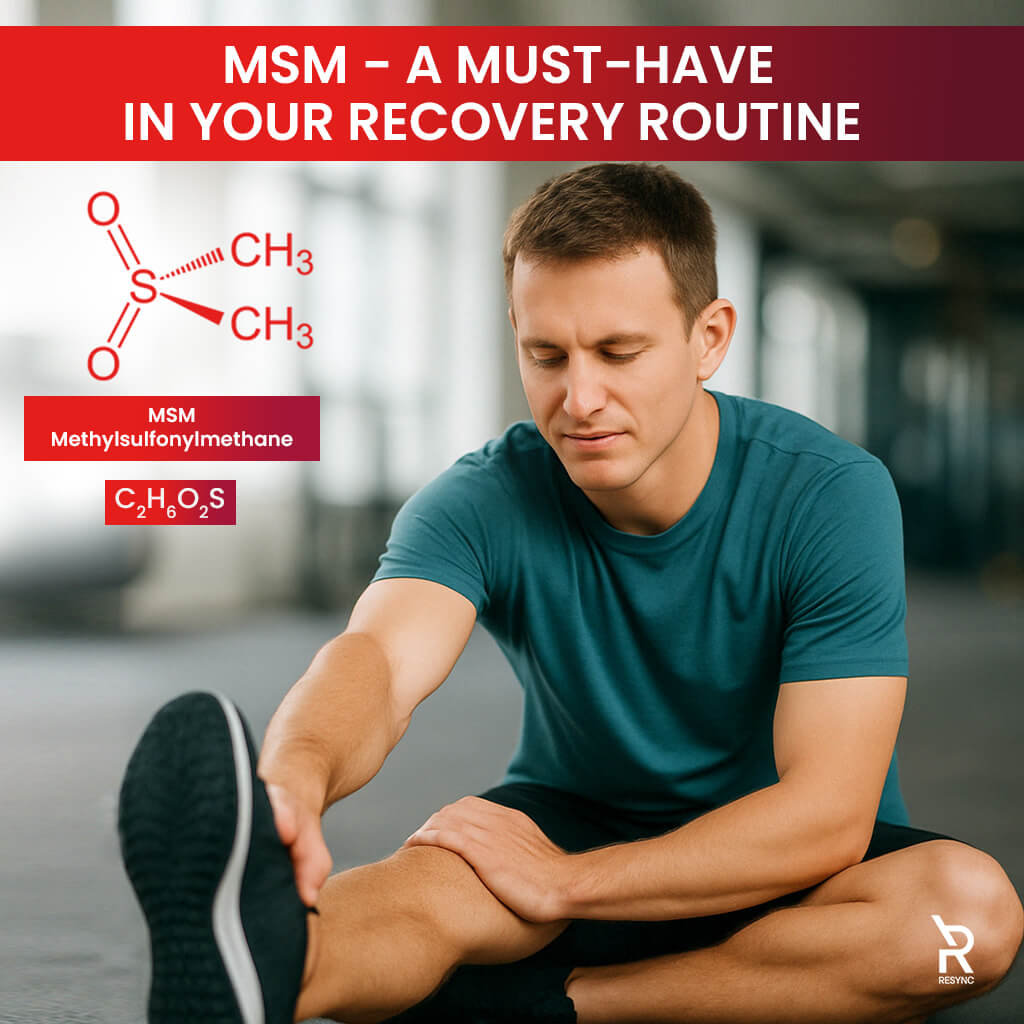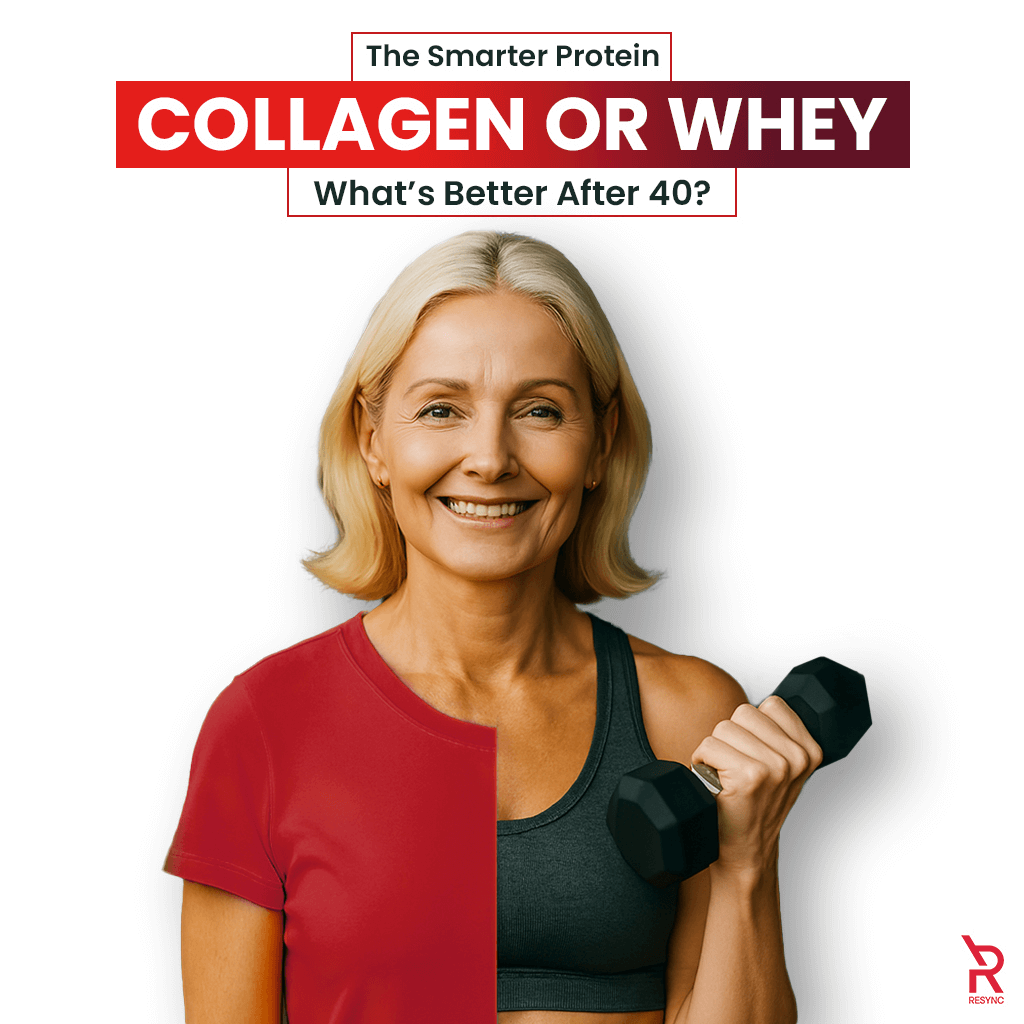How To Choose The Right Supplements

Whether you're browsing online or walking through the supplement aisle, you do not want to make the wrong purchase when it comes to supplements. As a former athlete and fitness competitor, trust me, I have made some mistakes, and my body paid the price. Today, as a CEO of a premium supplement company, I want to share an insider's perspective on supplement industry regulations and how they impact the quality of products you might be consuming:
- FDA & FTC regulations
- How the source, quantity, and quality of ingredients matter
- Third-party certification is the most important thing to look for on a supplement bottle.
These are critical things to consider before purchasing any supplement. I hope the information I share will serve you well and help you make healthier choices.
Are Vitamins And Supplements Regulated?
You may have heard that the government doesn't regulate supplements. Even though it's not true, I've even heard that from dietitians and health professionals.
The supplement industry can seem like the wild west at times, but supplements are certainly government-regulated — just not as much as we might want them to be. The manufacturing facility supplements are made in, the accuracy and the strength of the claims they make, the introduction of new-to-the-market ingredients, and the way side effects are reported are all regulated in the vitamin and supplement industry. Supplements are not actually FDA-approved like pharmaceuticals are, but there is a standard they are minimally held to.
Because of this, I set very high standards for any supplement Resync company makes. The framework I'm about to share with you will help you stay safe while taking any supplement.
Why Are Supplements Not FDA Approved?
I want to give you a little bit of background on supplement regulations before we dive into questions you should ask before buying any supplement.
Supplements are more regulated like the food products that they come from than pharmaceuticals. This helps the government strike a balance. On one hand, they have to make sure the bare minimum is met when it comes to supplement safety, and on the other hand, Americans want the freedom to make or take a supplement that comes from a plant you can grow in your backyard.
This led to a set of regulations that define how the FDA does not approve supplements like pharmaceuticals, but does hold supplements to a minimum standard, called the Dietary Supplement Health and Education Act (DSHEA). This is where you've heard that tired refrain: "supplements aren't approved by the FDA". Even if they're not "approved", the FDA does clear the manufacturer as a facility that satisfies FDA requirements. Not every supplement manufacturer is FDA approved, for example if they use ingredients commonly used before 1994 or if they come from outside of the U.S. You don't want your taxes spent cleaning up the mess left by an irresponsible supplement manufacturer, and the federal government wants to promote safety in the first place, so all supplements must be made in a facility inspected according to the current Good Manufacturing Practices. Facilities have to maintain standards of cleanliness, safety (for the workers), and consistency (even if they're consistently turning out a poor product).
Other regulations in the Dietary Supplement Health and Education Act include what must be labelled on a supplement bottle and what claims supplement makers can make based on the available science, among others. For example (and unfortunately for you, the consumer), a supplement can make almost any claim, as long as it follows specific wording rules and is qualified with that familiar statement: "The statements made by this product have not been evaluated by the FDA. This supplement does not treat, prevent, or cure any disease."
What role does the FTC play in supplement safety?
The Federal Trade Commission also plays a role here. DSHEA outsources the responsibility for the accuracy of claims made about supplements to the FTC. The FDA says what the definition of "a good source of vitamin C" is, but the FTC is responsible for holding companies accountable to those kinds of claims.
The FTC makes sure that supplement makers represent their products accurately and according to science.
Honestly, I wish they did a better job.
The FTC requires supplements to substantiate their claims, meaning that if a supplement says "supported by clinical research, " there have to be studies published supporting that claim. Unfortunately, the FTC does not dive into the details here. For example, a ginger supplement can simply refer to animal studies or studies in humans with a different dose, extract, delivery method, or type of ginger.
Suddenly it doesn't seem fair that the supplement manufacturer can refer to irrelevant studies when they claim that their supplement has health benefits. Shouldn't they be required to only refer to studies that are done on that dose, that type of extraction method, and that exact supplement, rather than just any supplement that might be similar?
I personally spend endless hours analyzing the research to make sure you only get the most up-to-date and accurate information available on my ingredients present in Resync products. Other companies settle for less, churn out crap, and cross their fingers hoping they can make a quick buck before the heavy hammer of the law comes down on them or potentially misses them.
Then who's controlling the safety of the final product then? I'm not talking about just the facility in general; I'm talking about each and every batch of supplement produced. Who's monitoring that?
Nobody.
That's right. The FDA may take a look at some batches of a product, but they do not test every batch for consistency of what's inside, safety and accuracy. Seems like a pretty big leap of faith to me! And dangerous. That's why I rely on the best 3rd party testing available in the USA. Companies like NSF International and Banned Substances Control Group test multiple samples with each batch to ensure there are no contaminants, the ingredients on the list match the ingredients quantities on the bottle, and even the manufacturing facility is audited twice per year by NSF team. As clearly you can tell FDA is not good enough for a product to come out with the best quality and safety.
I can't tell you how many supplements use the wrong form or source of an ingredient, cut corners, or add legal and illegal fillers to bump their profits. I want you to be an informed consumer so you never get taken advantage of.
How Do I Know If A Supplement Is Good Quality?
I ask these 4 questions every time I judge a supplement:
- What is the dose of each key active ingredient (and price) per serving? Is the ingredient standardized to anything?
- Are the extra ingredients fillers, or do they provide an additional health benefit?
- What research backs up the claims on the bottle? (Did the company only refer to a 3rd party science or perform any human studies with its finished product?)
- What Third-Party Certification does the product have?
If you want some more details on these steps, check out my blog where I dive into the details for collagen supplements: Which Collagen Is Best?. I will cover what I think is the most important one — third-party certification — here.
What is independent third-party certification and why is it important?

These all look great, right?
A quality seal of approval is sure to mean something good!
Unfortunately, these “seals of approval” mean nothing. That is correct.
Every facility has to be GMP compliant and inspected by the FDA. There is no such thing as a certification for it, it’s just the bare minimum a supplement manufacturer has to follow. Like I mentioned earlier, unfortunately not every facility does follow the protocols.
Made in the USA is great — generally, companies from Europe and the United States put out a generally higher quality product — but that really doesn’t tell you anything about the supplement itself.
Why?
Because it is also, and equally important, where the ingredients come from and were they tested by their companies for human consumption. Did the company conduct any studies to show what amounts could be safely consumed and what dosages actually are effective. Those are critical questions you must ask yourself.
This last one makes me laugh-cry.
If I didn’t care about consumer safety, I’d slap that label on my products and trick you into thinking my products are “guaranteed”.
By whom, though?
In this case: nobody.I hold my company to a higher standard; in fact, Resync is held to the very highest standards in the industry. I want you to look for legitimate seals of approval, not bogus ones like these.
What is the best third party certification for supplements?

At the top end of quality, safety, purity, and cleanliness is NSF sport. There is no better certification than this for supplements. They test for accuracy of the label, contaminants like doping ingredients, fillers, mold and bacteria, heavy metals, and pesticides. They even audit the manufacturer themselves twice a year.
Because of their rigorous standards, professional sports organizations — including The United States Anti-Doping Agency, MLB, NHL, NFL, NBA, PGA, LPGA, CCES, CPSDA, iNADO, Ironman, NASCAR, and the Canadian Hockey League — only endorse supplements that hold NSF's certified for sport label. I love that Resync Recovery holds this certification. I know that every individual who tries it will be safe knowing that my company stands for transparency and science. This is the standard professional athletes hold their products to. Why wouldn't you?

The Banned Substances Control Group offers the most comprehensive analysis of contaminants and fillers available. Going beyond NSF's 280-list screening, BSCG tests for more than 491 drugs and substances on the World Anti-Doping Agency (WADA) Prohibited List and other professional sports league lists. Nothing slips through the cracks with BSCG certification, which is why Resync Collagen holds this seal.
Why should you hold your supplements to standards as rigorous as these? Here are a few examples:
The Clean Label Project — a nonprofit that tests popular products so that you can know what's actually in the things you buy — did a recent study. They tested 137 of the most popular protein powders off the shelf and the results are scary: many protein powders had lead, arsenic, and cadmium levels that violated federal safety standards.
Take another recent supplement scare from early 2021. A Harvard research group exposed 17 fitness and weight loss brands for including 9 prohibited stimulants in their products. This was not the FDA catching the bad guys; this was an overworked, underfunded research lab doing the work to keep American's safe.
Just look at the FDA's list of contaminated supplements. Do you really want to risk taking a supplement that may contain ingredients that can cause birth defects? What about the ones that fly under the FDA's radar? These kinds of trends have been going on for decades, and show no signs of stopping, so please for the sake of your health and safety, always choose certified supplements!
How do I decide which supplements to take?
Back to actually choosing a supplement, how do you know which ones to take?
Getting your diet assessed by a nutritionist or dietitian is an important first step. It often takes a few tweaks in your diet to get all your nutrients, and I'm the first to recommend diet and lifestyle changes. After all, take all the supplements you want — they won't do a thing if they're added on top of a poor foundation.
Even so, most people have trouble getting enough calcium, magnesium, vitamin D3, vitamin C, potassium, and omega-3 fatty acids, even with a healthy diet.
Some people will need a genetic test to see if they should be taking specific supplements. Talk with your qualified health professional for details on what kinds of supplements you should take for your specific genetics. Folate, collagen, vitamin D, and plant-based nitrates are some common supplements that people may need to take depending on their genetic variants.
If you have your diet down to a science, you'll be looking for supplements for specific symptoms or purposes rather than to fill in the nutrient gaps left by an unhealthy diet.
Let how you feel guide you:
Do you have trouble falling asleep?
Are you feeling extra sore after a workout?
Are your stress levels too high?
Do you need to perform at a high level for an extended time?
Are you trying to lose weight or gain muscle?
Are you recovering from injury or surgery?
These are just a few examples of when your body needs some extra support in the form of a targeted nutrition and supplement plan. Dive into the research (a lot is covered in the Resync blog) and decide what supplements you might consider based on quality research studies.
We can't weigh in on individualized supplement recommendations — you'll have to talk to your doctor about that — but if there's one thing no other supplement can beat us on, it's recovery. Check out our quality-certified, scientifically formulated, an athlete-approved product line of recovery supplements (all at an attractive price point) if you want to quickly get back to your best after a hard day of training. Professional athletes trust Resync for their post-workout recovery, but I recommend you be the judge for yourself.
What is the best way to optimize supplements? Is there a best way to take supplements?
Even if you've got the right supplement in hand, it's not always obvious if "taking as directed" is going to be effective. Find the answers to these questions to optimize the effect of your supplement:
- How much should you take? What is the dose you should take for your individual biology?
- When is the best time to take it?
- What type of supplement is going to get you results? (Are different versions of a supplement absorbed or utilized differently?)
- Should you take your supplement with any other foods or on an empty stomach?
- Should you NOT take your supplement with specific foods?
Answering these questions is crucial to making sure your money is being well spent. You'd be surprised how effective you can make your supplement regimen with just a few tweaks.
What are the best overall supplements to take daily?
f you look up the most common nutrient deficiencies in the industrialized world, you'll regularly see magnesium, calcium, vitamin D, vitamin C, omega-3 fatty acids, fiber, and potassium, among others. Most of these supplements are far better when you get them from natural sources.
For example, fiber from plants comes along with a list of vitamins, minerals, and beneficial phytochemicals. You won't find that in a just-add-water fiber supplement. Omega-3 fatty acids come from fish, which provide a great source of the potent anti-inflammatory astaxanthin, as well as key nutrients like calcium, magnesium, and sometimes even vitamin D3.
When you can't get it from food, ask yourself those questions to make sure the supplement you buy is truly worth it. Don't let a supplement replace what you should be getting from real food, but don't be afraid to take safe supplements if you need that boost!
Is it healthy to take supplements every day? Are there downsides of taking supplements?
Some supplements are filtered out and end up in your urine if you take too much at a time. Others build up and can be toxic if you're taking too much.
Generally, you should watch out for taking too much of the fat-soluble vitamins: vitamins A, E, & D. (Curiously, it's unlikely that you'll take too much vitamin K, even though it is also fat-soluble.) Minerals are another type of supplement that you shouldn't take too much of. Not only can they cause side effects, but all minerals are toxic at high enough doses.
Like the toxicologists say: "The dose makes the poison" — at a base level these vitamins and minerals are essential for life, at the optimized level they will help you thrive, but be careful about taking too much!
Water soluble vitamins on the other hand are rather difficult to overdose on. They just end up making your pee yellow if you take a high dose. Even then, you should check to make sure you're taking less than the upper limit and probably not higher than the recommended dietary allowance, as defined by the Institute of Medicine. Here's a link to their recommendations for vitamins and minerals so you can check what the maximum recommended daily dose is.
You'll want to watch out for side-effects of taking too high of doses. Some supplements can cause diarrhea or gut pain at high doses. Others cause cognitive effects like brain fog or nervousness. Check in with yourself to see how you feel when you change your supplement intake and always double check with your doctor to make sure you're not missing anything. If your supplement is not third-party certified, then taking it daily may cause unwanted side-effects due to contaminants. You want your supplements to get rid of symptoms, not create them, so always look for a seal of certification like NSF Sport or BSCG.
Outside of these guidelines, whether it's safe to take a supplement every day or not will depend on its general safety profile and how it affects you individually. Some supplements interfere with prescription drugs, while some can add stress on your liver, kidneys, and detoxification pathways. Always inform your medical professional to make sure you're supplementing safely!
Please let me know what additional questions you may ask after reading this blog. Please share, reach out to us. Remember, Resync is here to help you live a healthier life.
We want to hear from you!
Want the practical details on how to eat and supplement to support your exercise, heart health, beauty, and energy? Subscribe to our feed and never miss our best content! If you want more, leave a comment or question below, and we’ll get back to you! While other companies push clickbait and fake news, what we say is backed by research. When you have the right information, you are empowered to make the right decision, that’s why we break down complex science into practical takeaways you can use today. If there’s something you want to know more about, let us know by contacting us or getting in touch on social media!
Helping you lead a healthier life,
The Resync Team
References
Cohen, Pieter A., et al. “Nine Prohibited Stimulants Found in Sports and Weight Loss Supplements” Clinical Toxicology, vol. 0, no. 0, Taylor & Francis, Mar. 2021, pp. 1–7. Taylor and Francis+NEJM, doi:10.1080/15563650.2021.1894333.
Banned Substances Control Group. BSCG - The Gold Standard in Dietary Supplement Certification. https://www.bscg.org/. Accessed 8 July 2021.
Institute of Medicine. Dietary Supplement Health and Education Act of 1994, Public Law 103-417, 103rd Congress. https://ods.od.nih.gov/About/DSHEA_Wording.aspx Accessed 8 July 2021.
Institute of Medicine. Vitamin and Mineral Supplement Fact Sheets. https://ods.od.nih.gov/factsheets/list-VitaminsMinerals/. Accessed 8 July 2021.NSF International. Certified for Sport®. https://www.nsfsport.com/. Accessed 8 July 2021.
Written by Barbara Depta and registered dietitian, Detrick Snyder, MPH, RDN.
Updated on 7/12/2021.
Disclaimer
This content is for general informational purposes only, and does not constitute the practice of any professional healthcare service, INCLUDING the giving of medical advice. No provider-patient relationship is formed. The use of this information, and the materials linked to this content is at the user's own risk. This content is not intended to be a substitute for professional medical advice, diagnosis, or treatment. Users should abide by the advice of their healthcare provider, and should not disregard or delay in obtaining medical advice for any medical condition they may have.








